Positivity feels great. Trust me, I am a positive guy. I believe in finding the silver lining even in the worst situations and looking at the brighter side of life. But does that make the dark side disappear?
Can avoiding the darker side of life bring a lot more darkness? Can positive thinking be a bad thing? Is there such a thing as too much positivity? When does positivity turn into toxic positivity?
There are a lot of things in life, simple and little things, that can make us feel positive and happy. From a good book and warm cup of coffee to spending time with your friends and even getting a good sleep on a Sunday morning. Positive vibes and energy make us feel better about ourselves and help us navigate through the ups and downs of life.
But when you focus on “Good vibes only” and “No drama”, then ironically it can lead to negative vibes and a lot of drama. Happiness is a great thing to pursue, but when you try too hard it can become pretty harmful. And that’s when your positivity turns toxic.
Related: 11 Positive Thoughts For Your Everyday Motivation
Toxic positivity is very real
We have all seen those cringy “not here for negativity” and “positive vibes only” posts on Instagram. It can certainly be motivational to some extent and help people develop a much-needed positive mindset. But fake positivity can limit us from experiencing our wide range of emotions – good, bad, and ugly. What we need to realize is that positive thinking doesn’t necessarily lead to positive action. It is only by truly acknowledging our real emotions, whether happiness or depression, we can grow, evolve and experience happiness as it is meant to be.
But why toxic positivity is harmful? Imagine what telling a person with clinical depression to look at only the positive things in life and ignore all feelings of sadness, anxiety, and depression can do to him. It can make him feel that as he is unable to feel naturally happy, that there is something wrong with him. He will start feeling ashamed and blame himself for struggling with depression. He will become more withdrawn and isolated and fall into further depression.
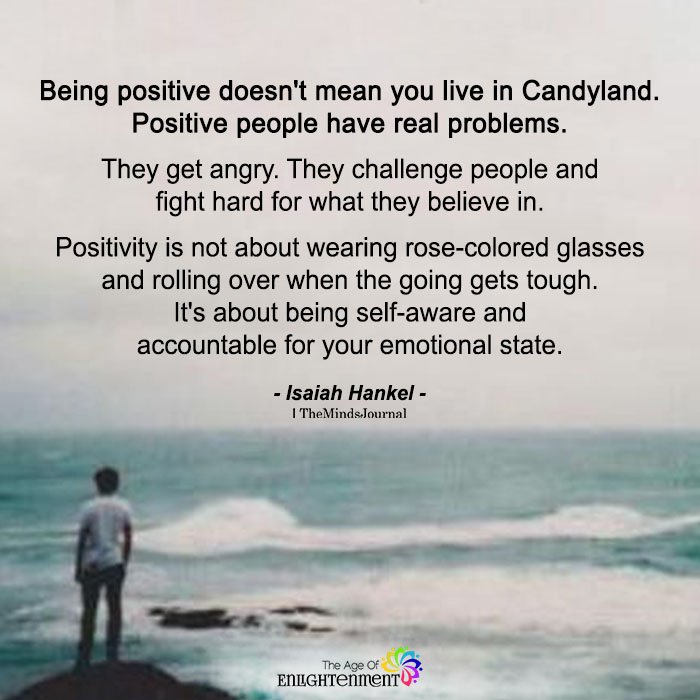
Now imagine the same person acknowledging all his emotions, reflecting on them, and being tuned in to the true experiences of being a human. Once he realizes what emotions he is going through, he will be better able to seek help, go for therapy and start to rebuild his life. Understanding all your emotions and thoughts makes you self-aware which leads to self-development practices and habits.
Avoiding your difficult emotions and looking only at the positive and brighter side of life is actually more harmful and pushes you further into the darkness that you wanted to avoid in the first place. Having said that, I am not against positivity. As I said, I am a highly positive person. But too much of fake positivity and superficial ‘self-love’ can make you confuse ‘being positive’ with ‘toxic positivity’.
Related: 12 Habits of Positive People and What They Do Differently
What is toxic positivity?
When you only focus on being positive and staying positive in your life, then it becomes toxic positivity. It can be defined as ineffective and extreme overgeneralization of an optimistic, happy and positive state of mind in any given situation. Toxic positivity leads to minimization, denial, and even invalidation of the real human experience on an emotional and mental level. It is when you focus only on positive thinking and avoid any and all negative emotions.
Just like everything else in life, too much of anything is not good. The same goes with positivity. Understanding the details of positivity vs toxic positivity is very crucial. When you abuse positivity to silence those emotions you are actually feeling inside, you’re doing more harm than good. By unacknowledging certain difficult emotions, we are repressing those feelings and making them bigger. We, as humans, are not meant to be perfect. We feel sad, stressed, anxious, resentful, angry, greedy, and jealous. This is how we are designed.
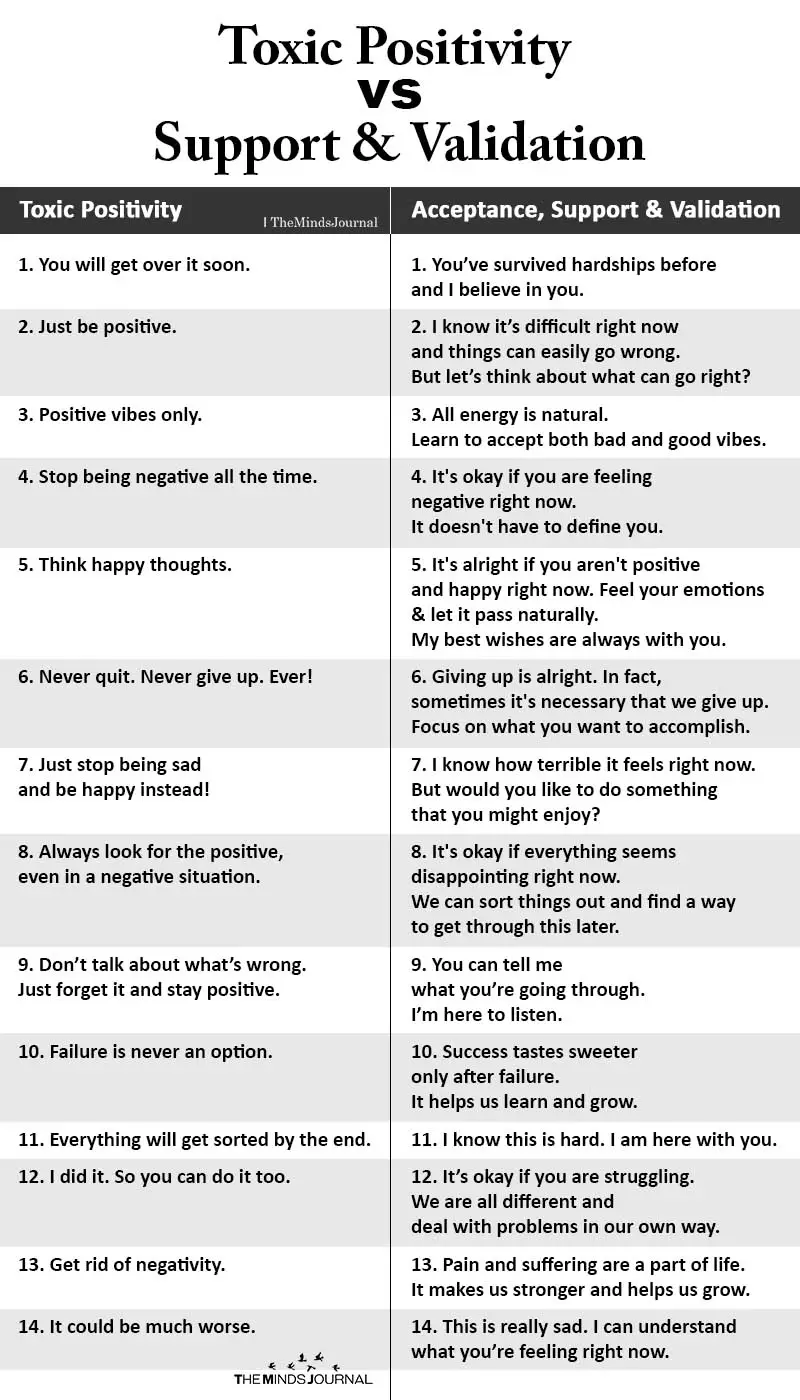
When you pretend to have “good vibes only”, you are denying yourself the authentic human experience. The unprocessed emotions that you deny feeling keep getting bigger as you look the other way. But the problem in this process is unsustainable. Sooner or later, you will crack and experience a rush of uncontrollable, unpleasant emotions.
As humans, we want to share all our emotions with our loved ones. We want to talk about our difficult emotions without worrying about being judged or feeling guilty. When you look at only the brighter side of life and fail to acknowledge what you are actually feeling, it is a toxic recipe for disaster. It is crucial that we look at all our emotions and validate our feelings. We need to tell ourselves it’s okay to not be okay.
Identifying the signs of Toxic positivity
If you are wondering whether you have toxic positivity, then here are some experiences and expressions that will help you recognize it in your daily life:
- Ignoring or hiding your real feelings
- Feeling ashamed or guilty for the emotions you truly feel
- Forcing yourself to move ahead by dismissing specific feelings
- Encouraging others to be positive and playing down their actual experiences
- Telling others that their situation could be worse, instead of validating their feelings
- Criticizing or shaming others for feeling sad, frustrated or other negative emotions
- Not leaving any space to acknowledge or experience pain
- Having a fake-it-till-you-make-it attitude
- Avoiding feelings that may affect and bother your mental and emotional well being

Toxic positivity is harmful
Did you know, according to a survey in 2017, only 33% of U.S. adults feel happy? But what about the rest? Don’t they know how to be happy? Don’t they know how to be positive? Well, they might be a bit too positive for their own good.
A recent study revealed that overestimating positivity and happiness can actually be counterproductive. It can make us obsess over negative emotions and make us feel more stressed. Forcing yourself to be happy and pressurizing yourself to remain positive constantly, regardless of the circumstances, can lead to unhappiness. By refusing to acknowledge your true emotions and holding on to fake or toxic positivity, you are ultimately driving yourself to long-term unhappiness.
According to Brock Bastian, co-author of the study {1} and social psychologist at the Melbourne School of Psychological Sciences, happiness can be an excellent experience but considering it as something we must accomplish can be a disastrous idea. Fake positivity can alter how an individual manages negative experiences and emotions, and this can make them feel worse. When we give excessive importance to happiness and force ourselves to become happy, we falsely perceive our negative experiences and emotions as a failure towards that goal. This adds to feelings of unhappiness and frustration.
Related: 8 Effective Ways You Can Cultivate Positive Thinking
The study is not a criticism on positivity or the pursuit of happiness. It is rather about understanding the importance of realizing and accepting negative emotions as a normal & healthy part of life. According to research {2} published by the American Psychological Association, difficult emotions can eventually make us feel a lot happier in life. Happiness is not just about having pleasing experiences and staying away from negative ones. It is about valuable and meaningful experiences involving the full range of human emotions. Depending on the context, every emotion can be considered positive or negative, whether they are pleasing or distressing.
Psychologist Brock Bastian believes accepting messy feelings paves the way for better mental health. Believing that avoiding bad experiences and seeking “positive vibes only” is a good idea can make us incapable of coping with negative experiences when they occur. The truth is life is filled with challenges, obstacles, and hurdles that lead to success, happiness, and satisfaction. Failure is a vital ingredient of success, so it is important that we know how to deal with failure, believes Bastian.
Why toxic positivity is bad for you
If you are still in doubt about the toxic effects of overestimating positivity, then here are some of the prominent reasons why toxic positivity is harmful for you:
1. It makes us feel shame
Shame and guilt are undoubtedly unpleasant feelings and can be significantly paralyzing to our mental and emotional health. Forcing yourself to be positive makes you hold on to your uncomfortable feelings and stay silent about what you’re struggling with internally. None of us want to look weak, so we pretend that our life is going perfectly fine. We act like we are okay even though in reality we are not.
When we deny and hide our emotions, it leads to a crippling sense of shame and guilt. Shame feeds on secrecy. This in turn makes us feel even more weak and affects our mental and emotional well being further.
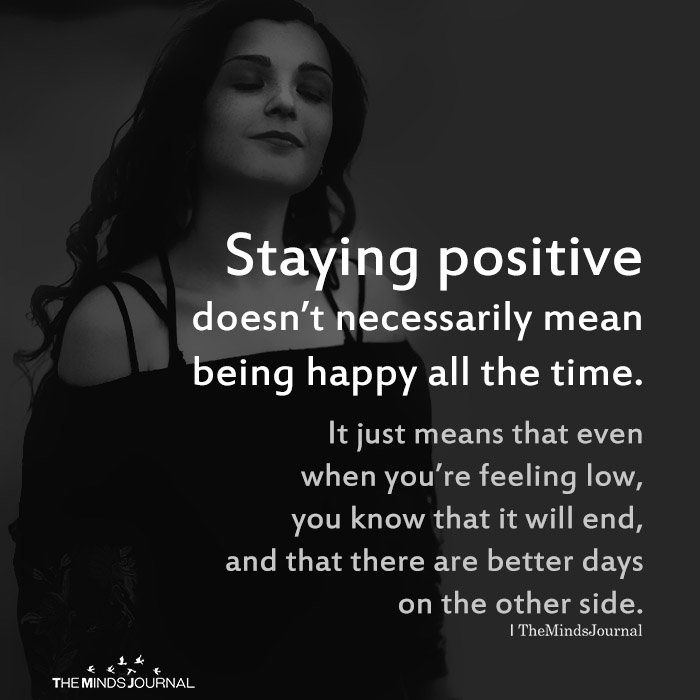
2. It suppresses our true feelings
Studies {3} have found that denying or hiding our emotions can result in additional stress and anxiety. It can even make it more difficult for us to avoid unpleasant thoughts and distressing emotions. Psychological studies {4} have revealed that suppression drastically reduced expressive behavior in both pleasing and uncomfortable situations. Thus, avoiding your real emotions and suppressing thoughts and emotions affects our quality of life and how we express ourselves in different circumstances.
The fact is expressing a wide range of emotions and showing how we feel through words and expressions enables us to better manage our stress response. It helps us remain sane, mentally healthy and release stress and anxiety caused by suppressing emotions.
3. It makes us isolated and unapproachable
As we start denying ourselves of our true emotions, we become unauthentic and artificial with ourselves and others around us. We lose the sense of who we are and our relationships with our inner selves become strained. As we portray a different version of ourselves to the world, people become disconnected with us. We become unrelatable to others as we desperately try to appear perfect socially. The truth is no one is perfect.
When we portray a false image of being positive and perfect, we become unapproachable to others. We unintentionally isolate ourselves from our friends and family and even ourselves. This affects our relationships and connections as people think they only have to be positive and happy around us. In the real world, none of us are happy all the time. By creating a fake persona of toxic positivity, we push our loved ones away from us and attract fake & superficial relationships.
Related: 10 Most Crucial Positive Emotions To Cultivate Daily According To Positive Psychology
Here’s how to deal with toxic positivity
Whether you are spreading or receiving toxic positivity, the first step in answering the question – how to avoid toxic positivity – is awareness. When you recognize you are participating in fake positive thinking, you can start to overcome it by acknowledging the truth. Accepting your true emotions and reflecting on your real thoughts will enable you to respond consciously, cope with difficult emotions honestly, build mental resilience and lead to long-term happiness.
When you recognize and accept your reality clearly and understand that it is okay to feel sad, you can finally start experiencing the complete human experience.
Learn to ‘Habitual Acceptance’ of emotions
Habitual acceptance of negative thoughts and emotions without self-criticism, judgment, and denial can help us become stronger and healthier emotionally. According to a recent study {5} conducted by the University of California, published in the Journal of Personality and Social Psychology, “habitual acceptance” of emotions and thoughts can lead to a number of psychological health benefits. The researchers explain habitual acceptance as the degree to which individuals “accept their emotions and thoughts without judging them.”
After surveying 1,300 adult individuals to determine the relations between habitual acceptance & psychological health, the researchers found that people who accept their unpleasant emotions honestly, without avoiding or trying to change them, tend to experience higher emotional resilience, better psychological health, and less negative feelings over time.
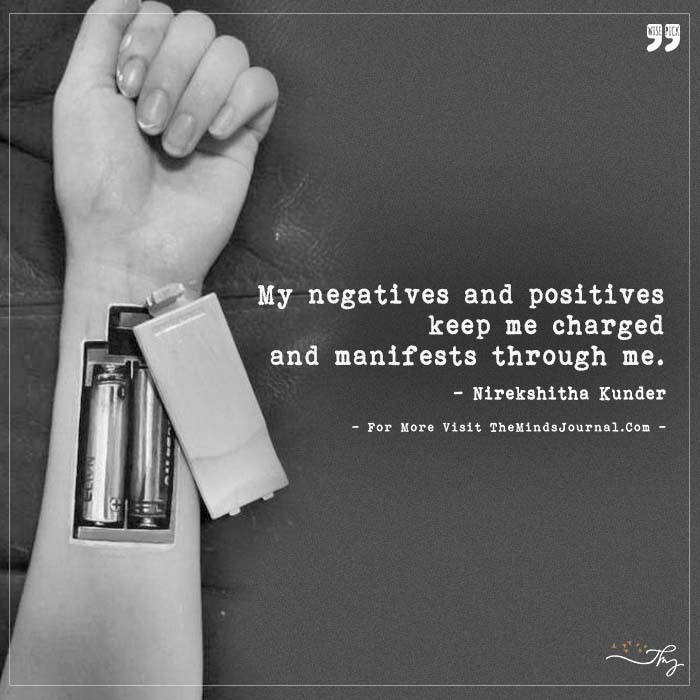
According to a 2018 study, {6} Brett Ford, lead researcher and assistant professor of psychology at the University of Toronto, explains that our overall well-being is closely associated with how we regulate our reaction to negative emotions. Someone who can accept and manage these feelings without feeling the need to change them or judge them is better able to cope with stress. The fact is accepting our emotions without trying to change them can ironically help us experience better mental well-being and less negative emotions, without forcing ourselves to change.
The researchers believe that acceptance is kind of a paradox in this context as it allows one to change their emotions when they don’t attempt to bring intentional change emotionally.
Related: 6 Positive Psychology Practices To Boost Happiness
How you can practice emotional acceptance
Emotional acceptance means observing uncomfortable feelings as they are and realizing that it is part of life that will come and go time and again. There is no reason for us to deny, fear or fight these negative emotions. We simply need to acknowledge them and accept our emotions no matter how good, bad or frustrating they may be. Although it may be difficult initially, it will eventually help us to develop the emotional strength we need to navigate through the ups and downs of life smoothly.
If you are keen on practicing emotional acceptance, both positive and negative, then here are a few quick ways to get you started:
- Realize that negative emotions are a part of life and the complete human experience.
- Embolden yourself to be truthful and honest in how you define exactly what you’re thinking and feeling.
- Welcome all difficult feelings with love, kindness and compassion towards yourself. Know that it’s okay to feel such emotions.
- Practice ‘Deep Acting’. Instead of being in denial or pretending to be okay and putting on a mask, try to listen to yourself and feel the actual emotion. Let it express itself naturally.
- Start journaling on a daily basis. {7} Make sure you honestly write down what you are going through mentally and emotionally without self-criticism or judgment.Understand that you’re not the only person experiencing negative emotions. Every single person on earth needs to experience these. Moreover, such feelings are never temporary and always pass naturally.
- Start practicing mindfulness meditation as it will help you become more self-aware, understand yourself better and live in the present moment.
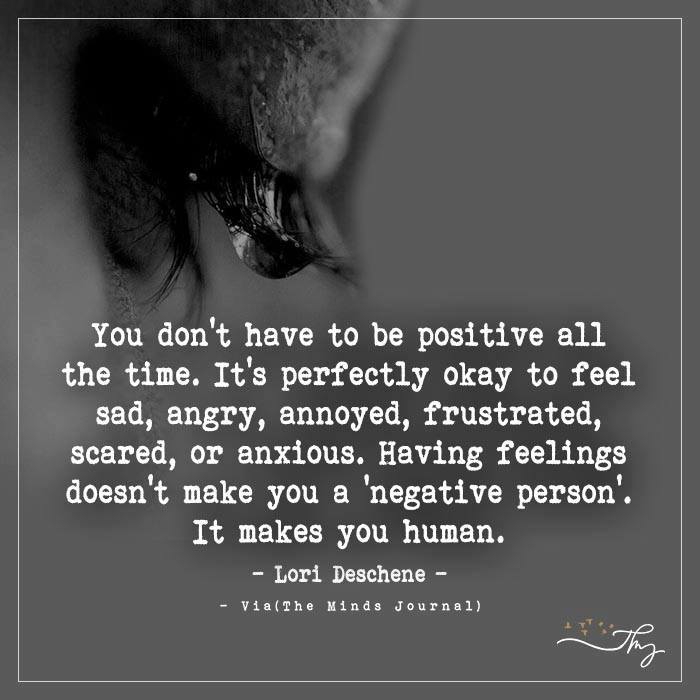
Let positivity brighten your life
Positive thinking teamed with positive action can empower us to completely transform our lives. However, when you force that positivity on situations that require you to take a pause and observe your thoughts and feelings, it can easily turn toxic and make your life difficult.
Your emotions need your full attention. Avoiding emotions makes you superficial and prevents you from understanding yourself and unlocking your true potential. When you validate your emotions, you enhance your capability to effectively face reality as it is. It helps you accept yourself as you truly are. This allows you to become more psychologically, emotionally, and spiritually more conscious and empowers you to build a better life for yourself.
References: https://psycnet.apa.org/record/2017-30676-001 https://www.apa.org/news/press/releases/2017/08/secret-happiness https://www.semanticscholar.org/paper/Hiding-feelings%3A-the-acute-effects-of-inhibiting-Gross-Levenson/f2b1d2302bc3d69695823dbaec3b49bf30747244?p2df https://pubmed.ncbi.nlm.nih.gov/3612492/ https://psycnet.apa.org/record/2017-30458-001?doi=1 https://pubmed.ncbi.nlm.nih.gov/28703602/ https://www.ncbi.nlm.nih.gov/pmc/articles/PMC1472640/
Frequently Asked Questions (FAQs):
Is toxic positivity a form of Gaslighting?
In short, yes. Gaslighting invalidates and alters our perception of reality, and toxic positivity can also shift our mindset to make us focus on the positive aspects and completely ignore the challenges associated with something. So, it is a type of gaslighting
What are some examples of toxic positivity?
One of the most common examples of toxic positivity is telling someone to be cheerful, happy or to “move on” after they have gone through a negative or traumatic experience, like loss of a loved one, divorce, break up, unemployment etc. It invalidates the sufferer’s emotions and does not allow them to process their emotional pain.
What is toxic positivity on social media?
#goodvibesonly is perhaps the most well known example of toxic positivity on social media. When we promote only the positive aspects of our lives and avoid the challenges we face and how we overcome them on social media, then this behavior becomes toxic. Although our thoughts behind such posts may be harmless, they may misguide someone unintentionally.
What is toxic positivity at work?
It typically refers to having a work culture that focuses on having a positive attitude at work, even when certain issues require the obvious attention of the employees and the management. Such forced positivity can reduce employee motivation and morale and lower productivity. When the expression of negative emotions at the workplace becomes unacceptable then it is surely toxic.
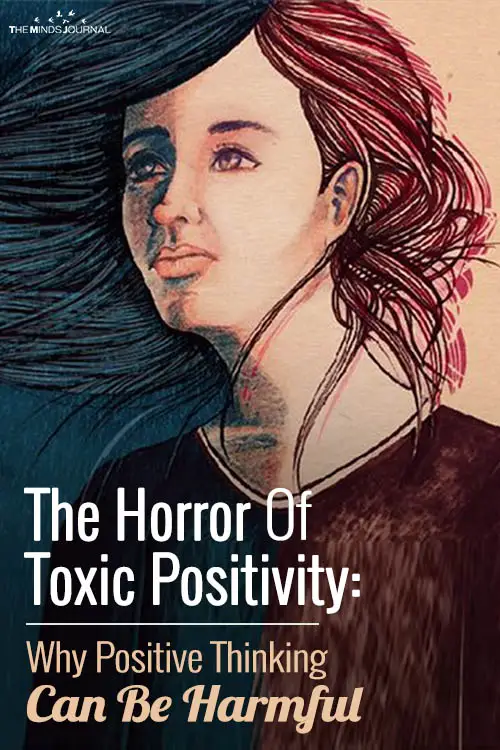
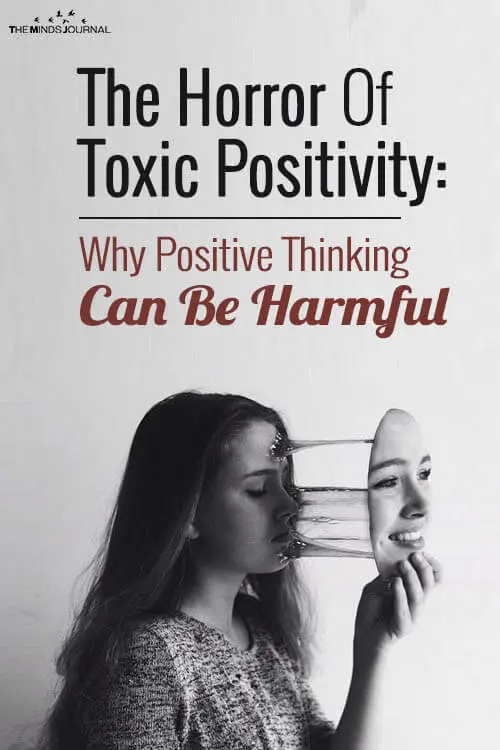
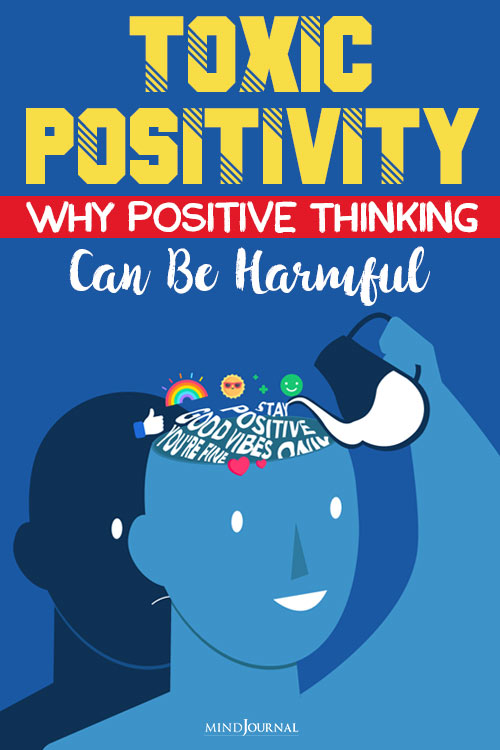
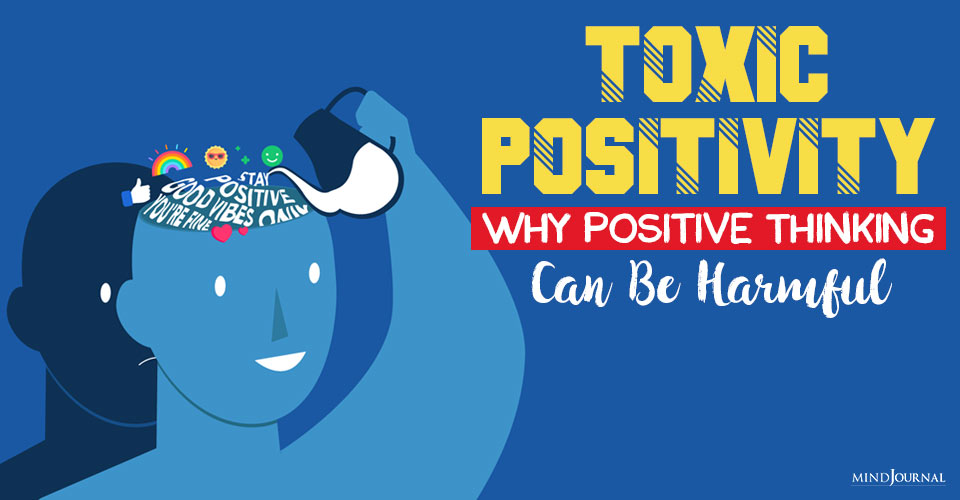







Leave a Reply
You must be logged in to post a comment.